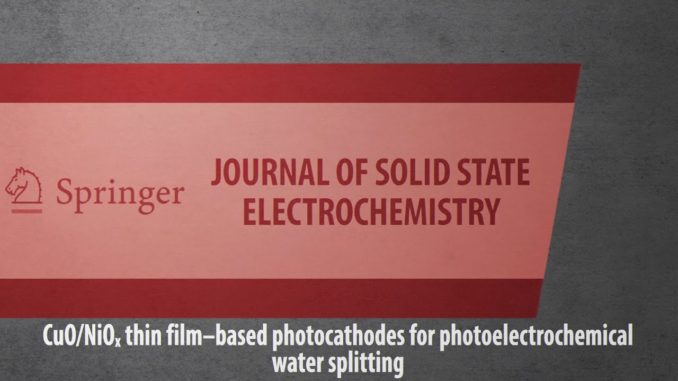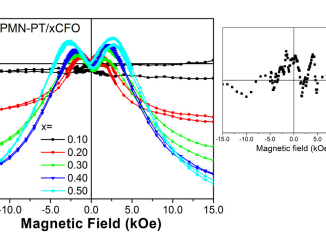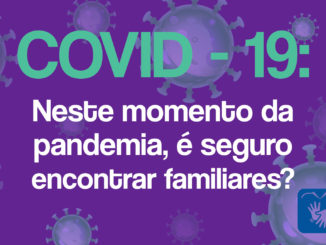
CuO/NiOx thin film–based photocathodes for photoelectrochemical water splitting
Abstract: Copper oxides are considered to be very promising materials for promoting a hydrogen evolution reaction (HER). However, some CuO features, such as the recombination of charge carriers, electron diffusion length, and the chemical stability need to be improved. In this work, NiOx was studied as co-catalyst to FTO/CuO, and the films were physically characterised by X-ray diffraction (XRD), X-ray photoelectron spectroscopy (XPS), and scanning electron microscopy (SEM). The photo-electrochemical activity and stability toward the HER were evaluated by depositing films on fluorine-tin doped oxide (FTO) substrate. Although, the CuO (− 3.61 eV) and NiOx (− 1.13 eV) conduction band positions, estimated by UV-Vis diffuse reflectance and the Mott–Schottky measurements, did not allow electronic transfer from CuO to NiOx, the formation of a thin layer of NiOx on CuO was beneficial for the activity of this material. The best CuO/NiOx film exhibited a photocurrent density of − 1.02 mA cm−2 at 0 V vs. RHE, which was higher than that for CuO (− 0.92 mA cm−2). A mechanism of electron transfer between CuO and NiOx is proposed. The absorption of visible light by CuO leads to the generation of electron-hole pair. Part of the photogenerated electrons are trapped by the NiOOH present in the NiOx layer, as demonstrated by XPS. The oxy-hydroxide is reduced to metallic Ni, and this species acts as a catalyst for the hydrogen evolution reaction. Due to the increase in interfacial pH caused by the evolution reaction of H2, the formed metallic Ni can be regenerated to NiOx.
Author(s): Santos, HLS; Corradini, PG; Jr, MASA; Mascaro, LH
Journal of Solid State Electrochemistry
Published: 08 February 2020
DOI: https://doi.org/10.1007/s10008-020-04513-5




